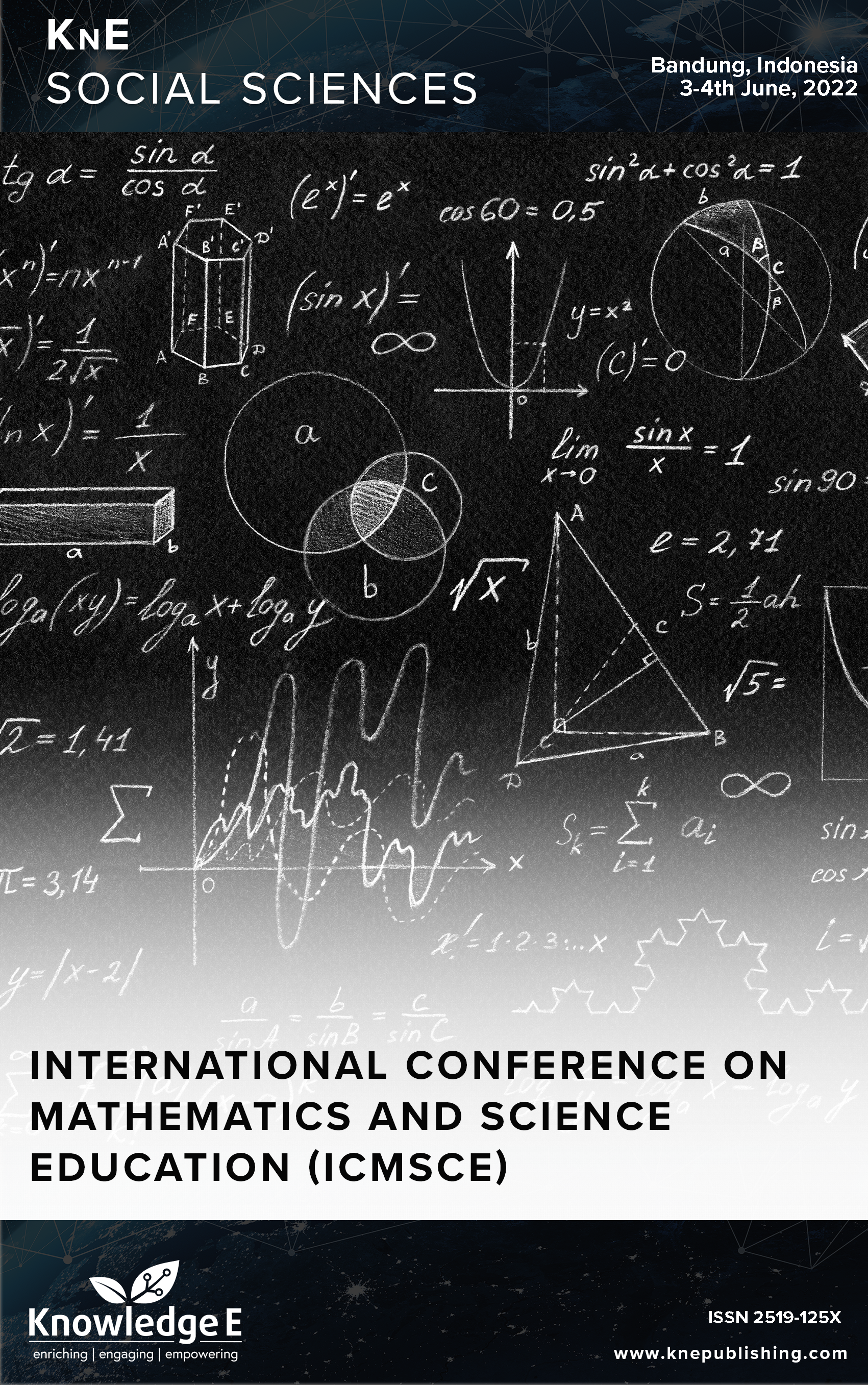Development of a STREAM-Based Self-Study Module to Stimulate HOTS in Petroleum Study Materials
DOI:
https://doi.org/10.18502/kss.v9i8.15509Abstract
This study aimed to develop a STREAM-based self-study module to stimulate HOTS in petroleum study materials and to test the effectiveness of the module. This developmental research used the 4D method. This research began with a literature study and observations of class XI MIPA students to see the material used and the learning process, as well as to find out the obstacles to learning. The initial conditions provided ideas for making STREAM-based self-study modules that are expected to stimulate students’ HOTS. The module was tested on a limited basis on online classes of XI MIPA 3 to see its practicality. In completing the module, an expert feasibility test was carried out. The expert test showed that the STREAM-based learning module to stimulate HOTS was in the very appropriate category with an average score of 94.55%. For the very decent quality category with a value of 93.13%, for the learning quality category, it was in the very feasible category with a score of 94, 28%., and 96.25% in the very decent category for technical quality (media). The very feasible category was at 96.67% for student readability. The use of STREAM-based self-study modules to facilitate HOTS was proven to be effective and can be used in the learning process. In modules with the STREAM approach to learning chemistry, students can develop independent learning skills and higher thinking skills.
Keywords: STREAM-based self-study, HOTS, petroleum
References
Mahartika I, Afrianis N, Yuhelman N. Analisis kebutuhan Chemistry Games (CGS) pada pembelajaran kimia di sma/ma kota pekanbaru. Journal of Natural Science and Integration. 2020;3(1):35–44. DOI: https://doi.org/10.24014/jnsi.v3i1.9347
Hadi K. Pengembangan kit praktikum untuk pandemi covid-19 berbasis dapur pada materi indikator asam basa.
Gusty S, Nurmiati, & dkk. Belajar mandiri pembelajaran daring di tengah pandemi covid-19 konsep, strategi, dampak dan tantangan. Medan: Yayasan Kita Menulis. 2020.
Hadi K. “Integrasi islam dalam pembelajaran kimia pada kurikulum tingkat sma/ma. 2018.
Herawati NS, Muhtadi A. Pengembangan modul elektronik (e-modul) interaktif pada mata pelajaran kimia kelas XI SMA. Jurnal inovasi teknologi pendidikan. 2018;5(2):180–191. https://doi.org/10.21831/jitp.v5i2.15424. DOI: https://doi.org/10.21831/jitp.v5i2.15424
Melati IA, Hadi K. Desain dan uji coba e-modul berbasis stream (science, technology, religion, engineering, art, and mathematics) pada materi ikatan kimia. Prosiding Seminar Nasional Pendidikan Kimia. 2022. 335–339.
Anisa RF, Pratama RT, Hadi K. “Implementation of Practice-Based Learning model (PRBL) using STREAM-based approach in madrasah aliyah of 2 model pekan baru.,” p. 2022.
Alawiyah F. Standar nasional pendidikan dasar dan menengah. Aspirasi. 2017;8(1):81– 92. DOI: https://doi.org/10.46807/aspirasi.v8i1.1256
Hadi K, Sofyanita S, Ardiansyah A. Hidrokarbon dan minyak bumi dalam perspektif al quran. Journal of Natural Science and Integration. 2021;4(2):244. DOI: https://doi.org/10.24014/jnsi.v4i2.14308
Hadi K. “Kimia & islam.,” p. 2019.
Hadi K. “Dasar-dasar kimia islam.,” p. 2021. DOI: https://doi.org/10.31219/osf.io/j2798
Vebrianto R, Thahir M, Putriani Z, Mahartika I, Ilhami A, Diniya. Mixed methods research: trends and issues in research methodology. Bedelau: Journal of Education and Learning. 2020;1(2):63–73. DOI: https://doi.org/10.55748/bjel.v1i2.35
Sugiyono D. “Metode penelitian pendidikan pendekatan kuantitatif, kualitatif dan R&D.,” p. 2013.
Sundayana R. Statistika penelitian pendidikan. Bandung: Alfabeta; 2015.
Sudjana N. Penilaian hasil proses hasil belajar mengajar. Bandung: PT. Remaja Rosdakarya; 2014.
Octarya Z. Pengaruh model pembelajaran advance organizer berbantuan media dart board terhadap kemampuan berpikir kritis siswa pada materi laju reaksi. Konfigurasi: Jurnal Pendidikan Kimia dan Terapan. 5(1):7–14.

